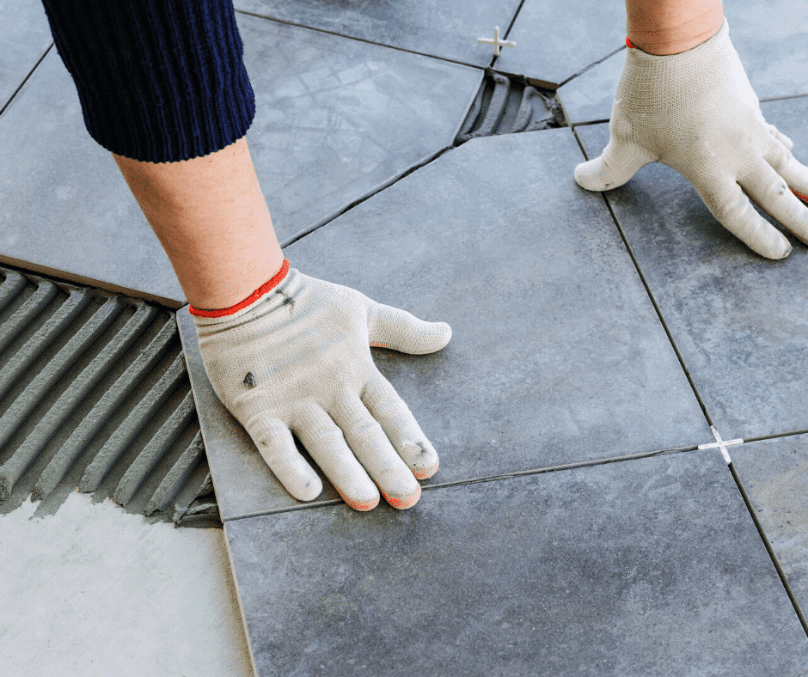Ceramic tiles are made by heating and cooling natural clay, making them durable, easy to maintain and cost-effective. It’s an attractive choice compared to many other flooring types, such as vinyl, carpet and wood, none of which can compete with ceramic in all these areas. Ceramic tiles are available in many shapes, colors, sizes and designs. Here are some key points to note about ceramic tiles:

Water proof
Although ceramic tiles are more porous than porcelain tiles, they are still highly water resistant. This makes it a good choice for areas that are more likely to get wet, like laundry rooms, kitchens, and outdoors.
Slippery
If your ceramic tile is glazed, it will be more slippery than unglazed tiles. For areas prone to moisture, rough and textured tiles are a much better choice.
Production process
Ceramic tiles are made from clay that is shaped and fired at high temperatures in large industrial furnaces called kilns. Common materials used as clay include natural stone, slate, marble, and even glass. This type of brick is produced in many countries around the world. If you want to buy ceramic tiles, you can find them at home improvement stores like Home Depot, Lowe's and Floor & Decor.
Industrial applications of ceramic tiles
Ceramic tiles have many different industrial applications due to their unique properties and durability. Some of these applications include:
Bricks and tiles
Ceramic tiles and bricks have been used in construction for centuries because of their ability to protect homes from the elements. They are non-toxic, do not emit volatile organic compounds (VOCs) and ensure a healthy indoor climate.
Industrial porcelain stone floors
Industrial porcelain tiles are more scratch and stain resistant than traditional ceramic tiles. It is commonly used in high traffic areas and is recommended by the American National Standard for industrial floors. Porcelain tiles are also frost-resistant and have a low moisture absorption rate, making them suitable for cold climates and areas with moisture problems.
Drainage pipes made of glass soil
Glass soil pipes combined with other unique materials are used for an effective and durable drainage system.
Fiber reinforced ceramics and ceramic composites
New forms of ceramic panels include fiber-reinforced ceramics, ceramic composites containing conductive layers for heating systems, porous inner layers for heat and sound insulation, and thin, strong, and lightweight tiles, helping to minimize their impact on the environment.
Refractory materials, abrasive materials, bearings and heat and wear-resistant parts
Ceramics, including ceramic tiles, are used in various industrial applications such as refractories, abrasives, bearings, heat and wear-resistant parts.
Countertops, facades and interior decoration
Industrial porcelain tiles can be used for countertops, exterior facades and various parts of the building, offering flexibility in design and functionality. Coatings and surface coatings: Ceramic tiles are used to cover or cover surfaces such as roofs, floors, walls, countertops, bathroom showers and other objects, providing corrosion resistance, heat protection, wear resistance wear and surface decoration.

